
Hu Jintao is a Chinese retired politician who served as the general secretary of the Chinese Communist Party (CCP) from 2002 to 2012, the president of China from 2003 to 2013, and chairman of the Central Military Commission (CMC) from 2004 to 2012. He was a member of the CCP Politburo Standing Committee, China's de facto top decision-making body, from 1992 to 2012. Hu was the fifth paramount leader of China from 2002 to 2012.
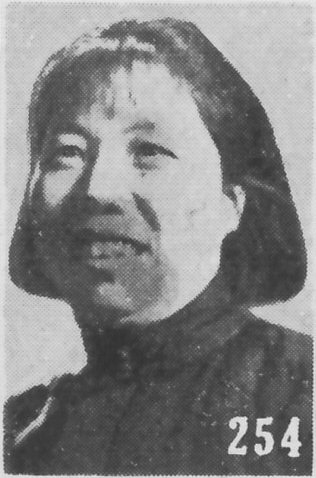
Deng Yingchao was the Chairwoman of the Chinese People's Political Consultative Conference from 1983 to 1988, a member of the Chinese Communist Party, and the wife of the first Chinese Premier, Zhou Enlai.

Robert Elliot Kahn is an American electrical engineer who, along with Vint Cerf, first proposed the Transmission Control Protocol (TCP) and the Internet Protocol (IP), the fundamental communication protocols at the heart of the Internet.
Hu Qili is a former high-ranking politician of the Chinese Communist Party (CCP), known as a champion of the country's economic reform program in the 1980s. He was the first secretary of the CCP Secretariat from 1985 to 1989 and a member of the CCP Politburo Standing Committee from 1987 to 1989. Following the 1989 Tiananmen Square protests, he was purged for his sympathy toward the student protesters and his support for General Secretary Zhao Ziyang's opposition to the use of armed force. However, he returned to politics in 1991. In 2001, he became chairman of the Soong Ching-ling Foundation.
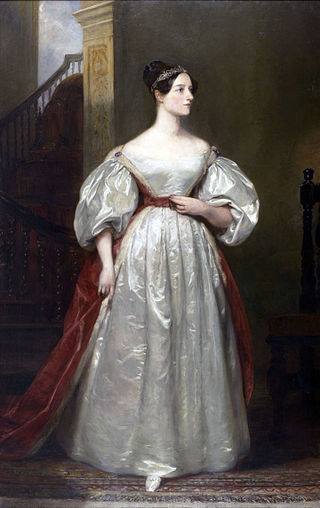
Women in computing were among the first programmers in the early 20th century, and contributed substantially to the industry. As technology and practices altered, the role of women as programmers has changed, and the recorded history of the field has downplayed their achievements. Since the 18th century, women have developed scientific computations, including Nicole-Reine Lepaute's prediction of Halley's Comet, and Maria Mitchell's computation of the motion of Venus.

The government of the People's Republic of China is based on a system of people's congress within the parameters of a unitary communist state, in which the ruling Chinese Communist Party (CCP) enacts its policies through people's congresses. This system is based on the principle of unified state power, in which the legislature, the National People's Congress (NPC), is constitutionally enshrined as "the highest state organ of power." As China's political system has no separation of powers, there is only one branch of government which is represented by the legislature. The CCP through the NPC enacts unified leadership, which requires that all state organs, from the Supreme People's Court to the President of the People's Republic of China, are elected by, answerable to, and have no separate powers than those granted to them by the NPC. By law, all elections at all levels must adhere to the leadership of the CCP. The CCP controls appointments in all state bodies through a two-thirds majority in the NPC. The remaining seats are held by nominally independent delegates and eight minor political parties, which are non-oppositional and support the CCP. All government bodies and state-owned enterprises have internal CCP committees that lead the decision-making in these institutions.
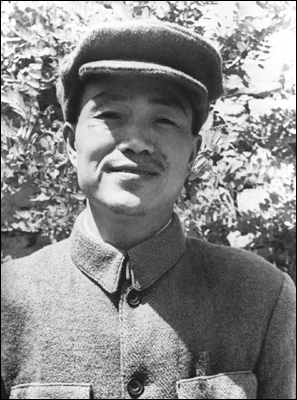
Hu Qiaomu was a Chinese sociologist, Marxist philosopher and politician.
Hu Hesheng was a Chinese mathematician. She served as vice-president of Chinese Mathematical Society, president of the Shanghai Mathematical Society, and was an academician of Chinese Academy of Science. She gave the Noether Lecture in 2002.
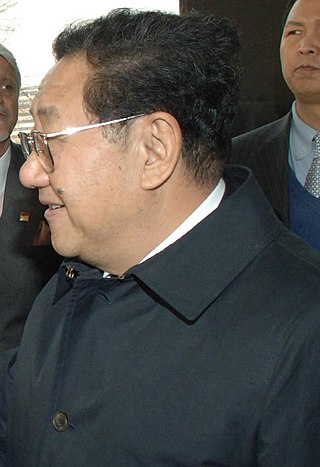
Chen Kuiyuan is a former Chinese politician. In a lengthy public career, Chen served variously as the vice chairman of Chinese People's Political Consultative Conference (CPPCC), the president and the Chinese Communist Party Committee Secretary of the Chinese Academy of Social Sciences, and CCP Committee Secretary of the Tibet Autonomous Region and Henan. He retired in 2013.
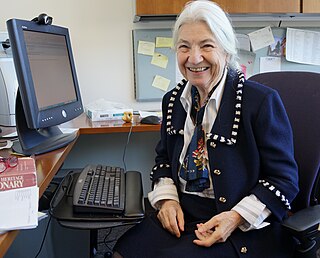
Ruzena Bajcsy is an American engineer and computer scientist who specializes in robotics. She is professor of electrical engineering and computer sciences at the University of California, Berkeley, where she is also director emerita of CITRIS.

Ira H. Fuchs is an internationally known authority on technology innovation in higher education and is a co-founder of BITNET, an important precursor of the Internet. He was inducted into the Internet Hall of Fame in 2017. Since 2012 he has been President of BITNET, LLC a consulting firm specializing in online learning and other applications of technology in higher education.

The Communist Youth League of China (CYLC), also known as the Young Communist League of China or simply the Communist Youth League (CYL), is a people's organization of the People's Republic of China for youth between the ages of 14 and 28, run by the Chinese Communist Party (CCP). The league is organized on the party pattern. Its leader is its First Secretary, who is an alternate member of the Central Committee of the CCP. The incumbent First Secretary is A Dong, appointed in May 2023. The Communist Youth League is also responsible for guiding the activities of the Young Pioneers.
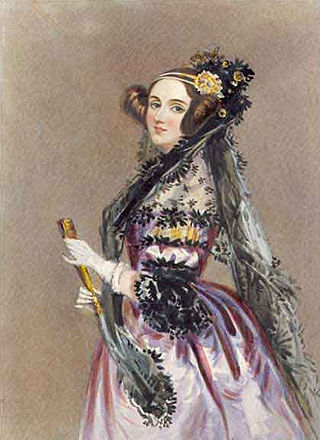
This is a timeline of women in computing. It covers the time when women worked as "human computers" and then as programmers of physical computers. Eventually, women programmers went on to write software, develop Internet technologies and other types of programming. Women have also been involved in computer science, various related types of engineering and computer hardware.
Lixia Zhang is the Jonathan B. Postel Professor of Computer Science at the University of California, Los Angeles. Her expertise is in computer networks; she helped found the Internet Engineering Task Force, designed the Resource Reservation Protocol, coined the term "middlebox", and pioneered the development of named data networking.

The 13thNational Congress of the Chinese Communist Party was held in the Great Hall of the People in Beijing from 25 October to 1 November 1987. It was preceded by the 12th National Congress of the Chinese Communist Party and was succeeded by the 14th National Congress of the Chinese Communist Party. It was attended by 1,936 delegates representing more than 46 millions of party members and included 200 foreign journalists who were invited to attend the opening and closing ceremonies. In addition, the Vice Chairman of the Standing Committee of the National People's Congress and the CPPCC National Committee, representatives from the National Federation of industry and commerce, non-party people, ethnic minorities and religious people were invited to this congress as audience.
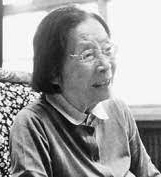
Chen Shunyao was a Chinese politician and academic administrator. She served as deputy party secretary of Tsinghua University, and was a delegate to the First and Third National People's Congresses. She was the wife of the high-ranking Chinese Communist Party (CCP) leader Song Ping, a former member of the CCP Politburo Standing Committee.
Tan Tieniu FREng is a professor at the Institute of Automation of the Chinese Academy of Sciences, China. Concurrently, he is deputy chief of the Hong Kong Liaison Office. CCP Committee Secretary of Nanjing University on Sept. 2022.
Xiaobo Sharon Hu is a Chinese-American computer scientist and engineer known for her work on hardware-software integration, power usage, and reliability of embedded systems design, including work on power- and temperature-aware scheduling algorithms. She has also published highly cited work on deep neural networks, the CORDIC algorithm for trigonometric calculations, and clocking of unconventional computer architectures. She is a professor in the Department of Computer Science and Engineering at the University of Notre Dame.
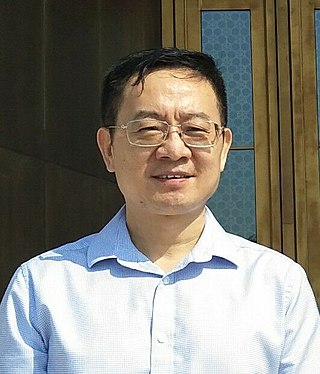
Gao Xiang is a Chinese historian and politician, currently serving as Chinese Communist Party Committee Secretary and president of the Chinese Academy of Social Sciences and president of the Chinese Academy of History.














